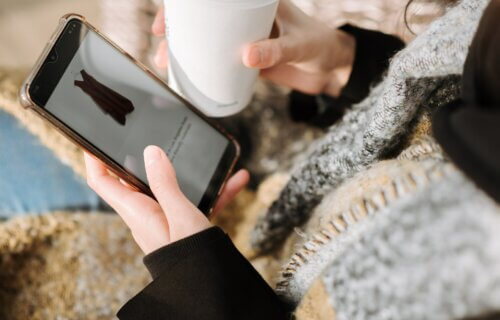TAMPA — Coffee and credit cards may be a financial planner’s worst nightmare, according to researchers from the University of South Florida. Scientists report shoppers who sip on a complimentary cup of coffee before shopping ended up spending 50 percent more money and buying 30 percent more items than their non-caffeinated counterparts.
“Caffeine, as a powerful stimulant, releases dopamine in the brain, which excites the mind and the body. This leads to a higher energetic state, which in turn enhances impulsivity and decreases self-control,” says lead study author Dipayan Biswas, the Frank Harvey Endowed Professor of Marketing at USF, in a university release. “As a result, caffeine intake leads to shopping impulsivity in terms of higher number of items purchased and greater spending.”
To reach these findings, researchers set up an espresso machine at the entrances of a retail chain and home goods store in France, as well as a department store in Spain.
Upon entering those stores, over 300 shoppers received a complimentary cup with nothing in it yet. About half of those shoppers ordered a coffee containing roughly 100 mg of caffeine, while the other half went with either decaf coffee or water. Importantly, customers also shared their shopping receipts with researchers as they exited the stores.
Sure enough, people who drank caffeinated coffee purchased a significantly higher number of items and spent more money.
Coffee creates more impulse buys
Interestingly, drinking caffeine also appears to influence the types of items people buy. Shoppers who drank caffeine bought more non-essential items (candles, fragrances) than the others. However, there were few differences among caffeinated and decaffeinated shoppers when it came to making more utilitarian purchases (kitchen utensils, storage baskets).
Study authors also conducted a fourth experiment in a lab, testing the impact of caffeine on online shopping. They separated a group of 200 business school students depending on whether they just drank caffeinated or decaffeinated coffee. Then, each person had to pick which items they would buy from a list of 66 options. Again, people drinking caffeine chose more “impulsive” items (like a massager) from the list while others tended to choose more practical goods like a notebook.
“While moderate amounts of caffeine intake can have positive health benefits, there can be unintended consequences of being caffeinated while shopping,” Prof. Biswas concludes. “That is, consumers trying to control impulsive spending should avoid consuming caffeinated beverages before shopping.”
The study is published in the Journal of Marketing.
You might also be interested in:
- Best Coffee
- Best Coffee Makers
- Best Drip Coffee Maker
- Best Instant Coffee
- Best Nespresso Machines
- Best Starbucks Drinks
- Best Espresso Machines


Coffee is a stimulant. It will lead to more doing of whatever you are doing.
Downers lead to less shopping I bet.
The problem, of course, is that the causal links are unclear.
It can also lead to more frequent use of the toilet.
My wife and I go through 2-3 pots a day. Maybe this explains why the house is so cluttered.
Coffee and smoking a “fatty” will really get the buying juices flowing.